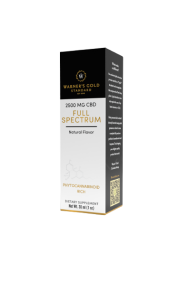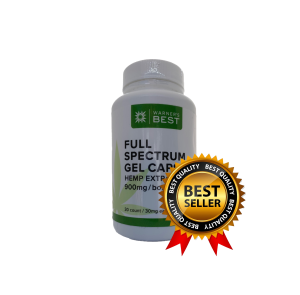What is CBGa and what is CBDa?
CBGa and CBDa have become the subject of a recent study on how cannabinoids interact with Covid-19. The researchers found that two cannabinoid acids commonly found in hemp, cannabigerolic acid, or
 CBGA, and cannabidiolic acid, also known as CBDA, can bind to the spike protein of SARS-CoV-2, the virus that causes Covid-19. By binding to the spike protein, the compounds can prevent the virus from entering cells and causing infection, potentially offering new avenues to prevent and treat the disease.
CBGA, and cannabidiolic acid, also known as CBDA, can bind to the spike protein of SARS-CoV-2, the virus that causes Covid-19. By binding to the spike protein, the compounds can prevent the virus from entering cells and causing infection, potentially offering new avenues to prevent and treat the disease.
IS CBGA THE SAME THING AS CBG?
The short answer: no, not at all. CBG is a popular cannabinoid in its own right, but right now CBGa is getting its own turn in the spotlight. Cannabigerolic acid (CBGA) is one of over 100 cannabinoids present in the hemp plant. Many folks refer to CBGa cannabinoid as the “mother of all phytocannabinoids.” It is essentially a foundational compound of the cannabis plant one of the very basic building blocks that all cannabinoids come from. CBGA breaks down into other molecules, including cannabidiolic acid (CBDA), tetrahydrocannabinolic acid (THCA), and cannabichromenic acid (CBCA). What’s more, CBGA is whats known as an acidic precursor to CBG, which means that CBGA converts to CBG under the right conditions – usually with heat and/or sunlight.
SO HOW DOES CBDA FIT IN?
CBDa is born from CBGa breaking down before it has time to be converted to CBG. The simplest way to think about the process is the hemp plant producing CBGa to fuel its growth as it matures, then the CBGa either converts to CBG through heat and sunlight, or the plant breaks down the CBGa during its growth cycle to naturally convert it to CBDa, THCa, and CBCa. Each of these three cannabinoids can be converted, by the same conditions, to their non-acidic compounds. THCa becomes THC, CBCa becomes CBC, and finally, CBDa turns into the CBD that most consumers are familiar with.

WILL CBGA OR CBDA MAKE ME HIGH?
Absolutely not. Acidic forms of cannabinoids are not any more psychoactive than their non-acidic counterparts. While they may bind to and act upon receptors in the endocannabinoid system differently, they will not make the consumer high.
ARE CBGA AND CBDA LEGAL?
As long as they are sourced from hemp and contain less than the federally-mandated 0.3% Delta 9 THC level, both compounds are protected by the 2018 Farm Bill and therefore federally legal.
WHERE CAN I GET CBDa?
The good news is if you have been buying your CBD from us, you’ve probably already been using CBDa without even knowing it. The following products have CBDa in them in the range of 6-10mg per serving:
Real Full Spectrum Oil (6-10mg per serving)
Warner’s Best is also launching a CBDa specific line that will offer CBDa in even higher concentrations. Keep an eye posted for that.
Premium CBD products without the expensive prices Shop Now!
